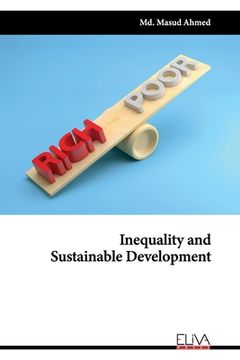Share
Inequality and Sustainable Development (in English)
MD Masud Ahmed
(Author)
·
Eliva Press
· Paperback
Inequality and Sustainable Development (in English) - Ahmed, MD Masud
$ 34.00
$ 42.50
You save: $ 8.50
Choose the list to add your product or create one New List
✓ Product added successfully to the Wishlist.
Go to My WishlistsIt will be shipped from our warehouse between
Monday, July 01 and
Tuesday, July 02.
You will receive it anywhere in United States between 1 and 3 business days after shipment.
Synopsis "Inequality and Sustainable Development (in English)"
The first chapter of this book talks about the association between inequality of opportunity and sustainability. What are the dimensions of unequal opportunities? Why does it matter? How does it impact the sustainable development aspirations of an economy? By employing 20 years of panel data from Bangladesh, the author has shown how long-prevailing unequal educational opportunities impact agenda-2030. Multi-dimensional inequality of opportunities, low public spending on education, higher individual out-of-pocket expenditure, and regional disparity lead to learning poverty and unequal employment opportunity. At the same time, the incidence of poverty is lower among people with a higher level of education. Being connected with most other SDGs, the inability to guarantee equal education opportunities and inclusive, equitable, and quality education, intergenerational inequality perpetuates by leaving the poor in the cohort of the poverty trap. Alternatively, ensuring fairness in achieving skill-based lifelong learning opportunities for people accelerates a country's vision to build an effective, prosperous, and just planet. The second chapter of this book discusses the role of civil servants in achieving SDGs by 2030. The chapter analyzes whether the newly recruited civil servants are equipped enough to transform development initiatives into reality. Here, the author critically evaluated training's effectiveness in understanding and gaining knowledge regarding SDGs and selecting the area that should get preference while implementing SDGs in developing countries. Standardized perception about SDG accelerates its implementation pace and ultimately bridges the knowledge gap.
- 0% (0)
- 0% (0)
- 0% (0)
- 0% (0)
- 0% (0)
All books in our catalog are Original.
The book is written in English.
The binding of this edition is Paperback.
✓ Producto agregado correctamente al carro, Ir a Pagar.

